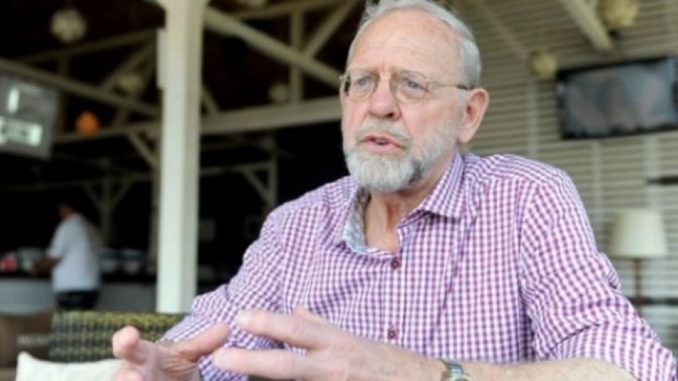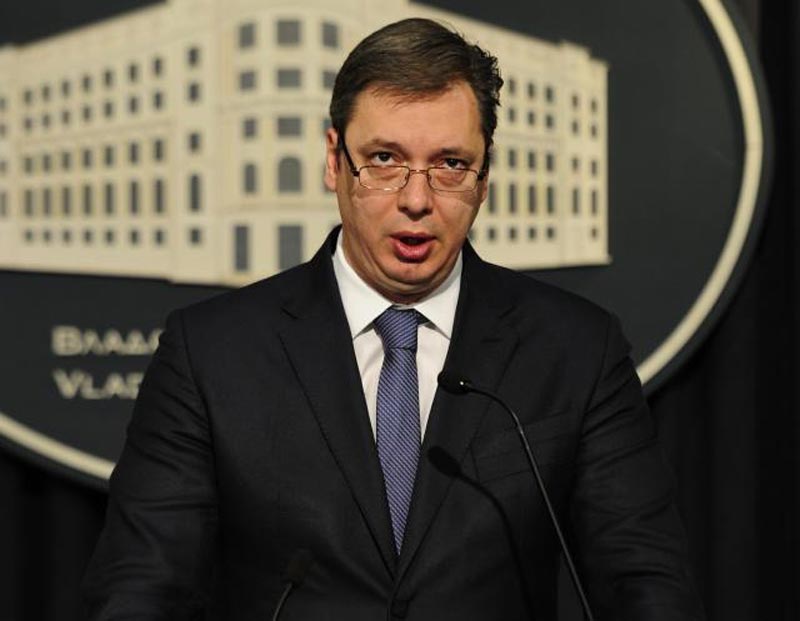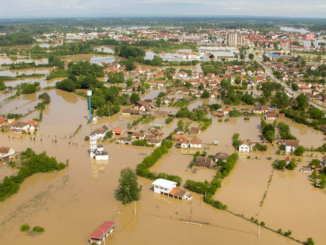
Fule’s criticism of BiH politicians’ unwillingness to change the constitution and his criticism of political leaders for the economic, political and social failures in Bosnia are connected. In both cases, the criticism of Fule go back to a serious disconnect between the West and political realities in Bosnia.
In the wake of the riots in the Federation Stefan Fule, the EU Enlargement Commissioner, went to Bosnia with a message. After a disappointing meeting with many of Bosnia’s political and protest leaders, Fule said that the leaders had to “listen to their people.” That advice is fair enough; too many leaders in the Federation do not hear the desperation of the people who are suffering with high unemployment, low wages, corruption and few opportunities to advance.
But, then Fule added: “I didn’t fail, your politicians did.” Fule was referring to the failure to implement the 2009 opinion of the European Court of Human Rights in the Sejdic-Finci case. In this case the Strasbourg court found that the Bosnian constitution (Annex IV of the Dayton Accords) discriminates against ethnic minorities. True, Articles IV and V of the constitution specifically require that a Serb, Croat and Bosniak be elected to the Presidency and that Serbs, Croats and Bosniaks be elected to the House of the Peoples in the national parliament.
Fule’s criticism of the politicians’ unwillingness to change the constitution and his criticism of political leaders for the economic, political and social failures in Bosnia are connected. In both cases, the criticism of Fule as well as that of the EU, Berlin, London and Washington go back to a serious – perhaps even politically fatal – disconnect between the West and political realities in Bosnia.
The West constructed Bosnia in the wake of the Balkan wars of the 1990s as a sort of engineering project. In all the discussions at that time about the future of the former Yugoslavia it was merely assumed that there would be, that there must be, a country called Bosnia. And, it must conform essentially to the borders Bosnia had in the old Yugoslavia and it must be multi-ethnic. There were no logical arguments to support such a decision; in fact logic pointed in the opposite direction. Once the decision was made it became “set in cement” in the consciousness of Western politicians and Western policy. It has remained there ever since, supported only by hollow rhetoric, meaningless slogans and smug dictates from Western capitals. When it comes to Bosnia, this is the world in which they live.
However, it is not the world in which the politicians and people of Bosnia live. Certainly they are sensitive to the Western demands and dictates because they want to please the West. But, at the same time Bosnian officials live in a world that is not multi-ethnic, where not only must they protect ethnic interests, but their own interests and careers as well. Too often, the clash between these two worlds creates frustration, confusion and timidity on the part Bosnian politicians – mostly in the Federation – and generates more demands and dictates by Western officials.
But the dynamic changes when the basic ethnic and personal interests of Bosnian politicians come into direct conflict with Western demands. When this happens Bosnian officials the ethnic and personal interests become more important and, although they often do not overtly antagonize Western officials, they do become passive aggressive until the storm passes and Western officials turn to some other issue. This is exactly what has happened in reactions to the riots and especially in reaction to the Sejdic-Finci ruling.
Moreover, politicians tended to see the riots as efforts to “destabilize “one or the other entity by enemies who challenged their interests and the ethic interests of their people rather than the cry of pain and desperation that they are. Their unwillingness to remove ethnic protections from the constitution is driven by the same concerns—a threat to ethnic and personal interests. Indeed, the Republika Srpska already has agreed to drop the “designation Serb” from the requirements to run for office, but this really costs the RS nothing because the overwhelming Serb population in the RS guarantees that Serbs will be elected. This is a much more serious problem for the Federation where opening up electoral offices to minorities could damage or even undermine Bosniak and, especially, Croat domination.
Without fundamental change, the clash between these two worlds will continue—much to the detriment of both entities. The Federation will continue to disintegrate economically and stagnate politically until there is a more serious explosion. The RS will continue to play the “cat and mouse game” with the Federation—one foot in Bosnia and one foot in independence. The political situation in the RS is more stable; and, although the economic situation is poor, it is not as dire as in the Federation. But, continuing to being tied to the Federation in a fictional state and a disintegrating Federation can only cost the RS opportunities for growth. And through it all, the West will continue to hector. (www.transconflict.com)
Steven E. Meyer is retired from the Central Intelligence Agency and the U.S. Department of Defense. Currently, he is a partner in the TSM consulting firm and a Fellow at the Center for Public Justice.



